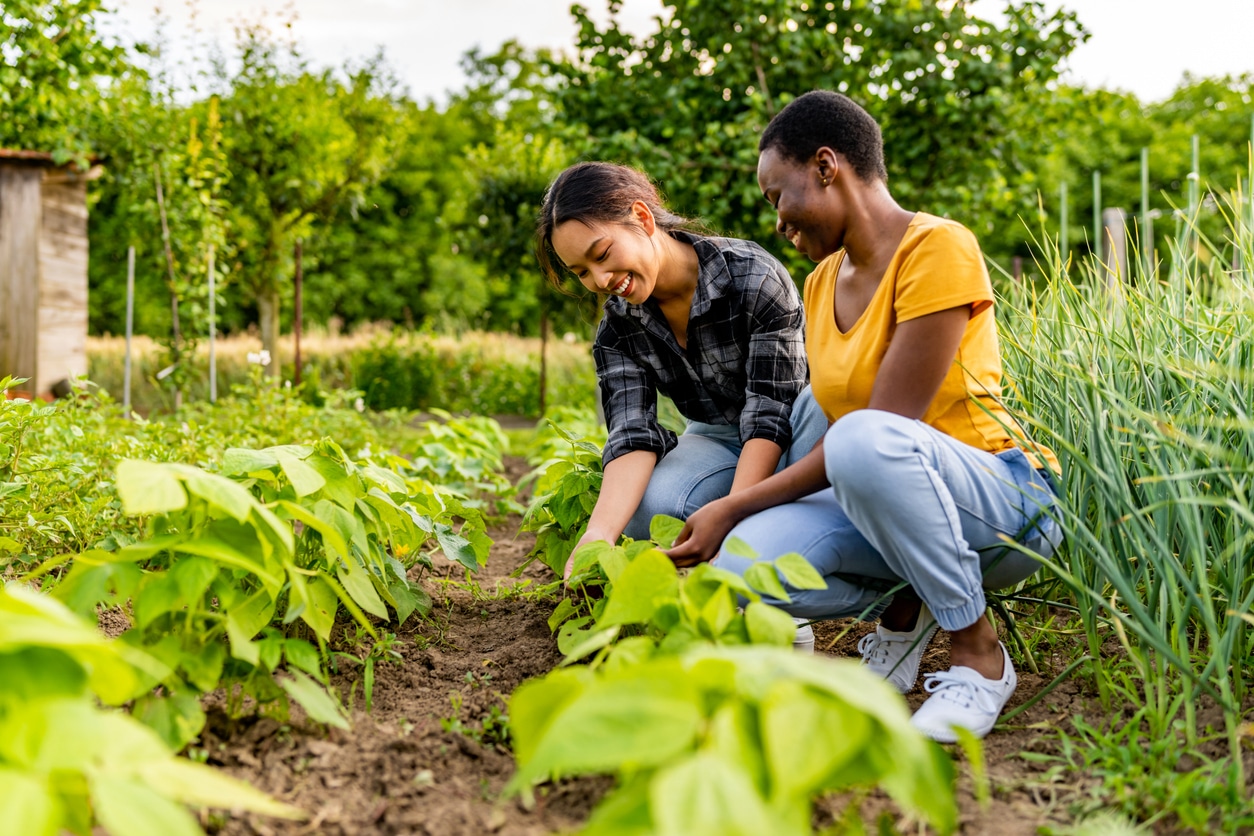Did you know that spending time in green spaces can have mental health benefits, including stress and anxiety alleviation, improved mood and better attention? Gardening is a great way to engage in a green space in your backyard, but for many people, environmental allergies can hold this fun activity at arm’s length.
Let’s look at a few tips to minimize your allergy symptoms during planting for easier gardening this year.
Watch Pollen Counts

Pollen counts aren’t steady. They may not bother you some days but severely aggravate your symptoms on others. Keep an eye on the pollen count in your area and schedule your gardening for low-pollen days for a better experience. If you’re not sure where to look, check out the Atlanta Weather Channel pollen count.
Choose the Right Plants
Choosing the right plants can make a big difference in your allergy symptoms. If your allergies are severe, opt for lower-pollen plants like apples, cactuses, cherry trees, dahlias, daisies, geraniums, tulips and hibiscus. Steer clear of high-allergic trees and grasses, including ash, cedar, cottonwood, maple, oak, Johnson grass and ryegrass.
To find the best plants for your allergies, contact your allergy specialist for a skin prick or blood test to identify your sensitive allergens.
Wear Gloves and a Mask
Wearing gloves is a simple way to prevent allergic skin reactions, such as hives, while also protecting your hands from cuts, dryness and dirt. Opt for a thick, long pair of gloves to effectively reduce allergy symptoms. Additionally, wearing a mask can minimize your exposure to pollen, helping you breathe easier.
Shower
Showering after you garden not only washes away grime and mulch but helps prevent the spread of pollen in your home. Grab a change of clothes and wash your hair to keep your home pollen-free, even after a day in the garden.
Take Allergy Medication
Allergy medications like decongestants, antihistamines, nasal corticosteroids, nasal sprays, eye drops and mast cell inhibitors temporarily relieve allergy symptoms. If you’re unsure which medication is right for you, contact your allergy specialist for help.
Environmental allergies don’t need to stop you from enjoying a blossoming garden. Contact ENT of Georgia North today to learn more about managing your allergies.